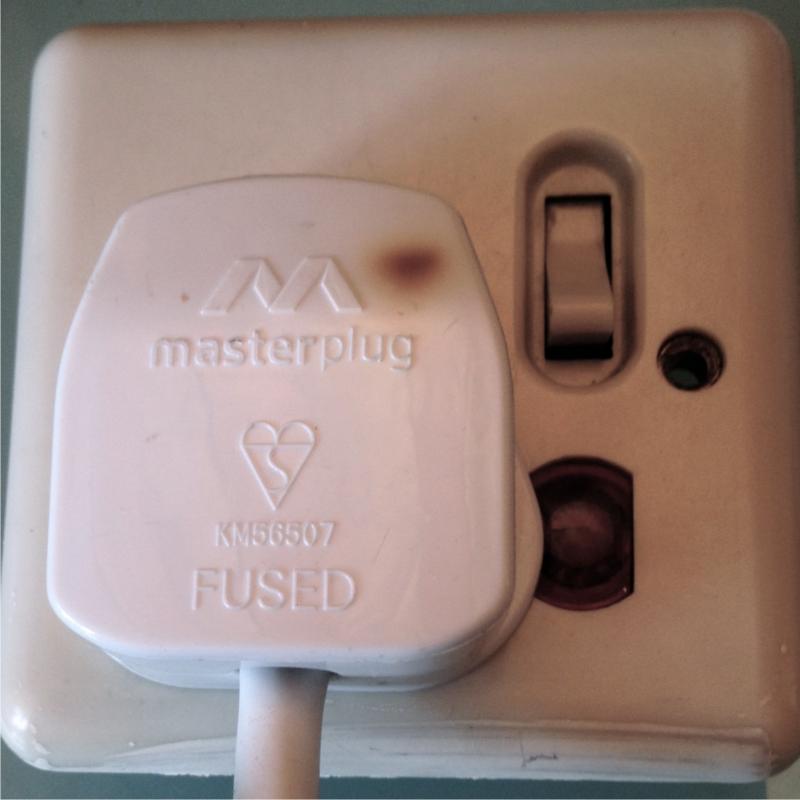saw reference to this thread Joe, and thought why not put my experience to it.
Many fires can break out from plug tops, tarnished pins causes high resistance and starts to heat socket, as well as the plug tops, particularly if you are powering a high power electrical appliance like a 2Kw to 3Kw heaters,
i have seen plug tops jammed solid inside sockets with all plastic parts melted, particularly in extension sockets.
Another main cause is portable appliances, such as hair dryers, these use twin core (figure mains cord, when it develops enough twists and turns during its use, the internal copper conductors starts to snap up especially around the appliance entry point, around cord grips, where the weakest point is, so when an appliance is in use and the conductor becomes just a few strands, it overheats and can easily catch fire, here a fuse would not blow, since the heat is being caused by high resistance and not overloading.
mains cord, when it develops enough twists and turns during its use, the internal copper conductors starts to snap up especially around the appliance entry point, around cord grips, where the weakest point is, so when an appliance is in use and the conductor becomes just a few strands, it overheats and can easily catch fire, here a fuse would not blow, since the heat is being caused by high resistance and not overloading.
Oh and don't forget lose terminal screws, these could overheat plug top pins to the extent that if one was using cheap non-BS plug tops or sockets can melt surrounding plastic and even catch fire, sparking joints within appliances. another common fault in the plug top is its fuse holder not pressing on the fuse tightly, or tarnished (oxidised) fuse contacts, including fuse itself, when you get poor resistance no fuse in the universe can protect against fire risk.
Many fires can break out from plug tops, tarnished pins causes high resistance and starts to heat socket, as well as the plug tops, particularly if you are powering a high power electrical appliance like a 2Kw to 3Kw heaters,
i have seen plug tops jammed solid inside sockets with all plastic parts melted, particularly in extension sockets.
Another main cause is portable appliances, such as hair dryers, these use twin core (figure
Oh and don't forget lose terminal screws, these could overheat plug top pins to the extent that if one was using cheap non-BS plug tops or sockets can melt surrounding plastic and even catch fire, sparking joints within appliances. another common fault in the plug top is its fuse holder not pressing on the fuse tightly, or tarnished (oxidised) fuse contacts, including fuse itself, when you get poor resistance no fuse in the universe can protect against fire risk.


